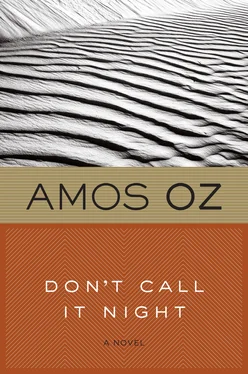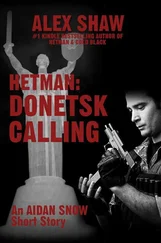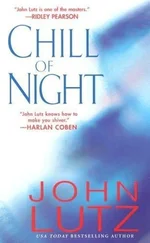On the roof of the bank building among a jumble of tin billboards is a gigantic slogan: IVE done the pools today. In the building on the left of the Town Hall, opposite the Health Fund, is Theo's office. The name on the office door is "Planning". On the same floor there is also the dental surgery of Drs. Dresdner and Nir; and, further along, Dubi Weitzman, notary and accountant, also photocopying and full service for documents of all sorts. In his leisure hours Dubi Weitzman paints the desert landscape in gouache; five of his canvases were once shown in a collective exhibition in a private gallery in Herzliyya. On the wall of his office in a frame decorated with mother-of-pearl hangs an enlargement of a review in Ha'aretz newspaper in which his name is mentioned. Dr. Nir is a rock-climber, while Dr. Dresdner's wife is a distant relative of a singer who gave a performance here the winter before last and distributed autographed photographs of herself to her fans.
A couple of Bedouins, no longer very young, sit side by side on the steps of the Workers' Council, both wearing jeans. One sports a brand-name T-shirt, the other is in tatty battle fatigues. The shorter of the two is sitting with his forearm resting on his knee, palm upwards, his thumb repeatedly stroking a dead cigarette resting on his four cracked fingers. Slowly. The other has a bundle done up in old newspaper between his knees. His eyes are fixed on the sky or the glint of the radio aerial on the roof of the police station. Waiting. An old Ashkenazi pedlar walks past dragging his feet, with a tray fastened round his neck by a string. On it are frogs that can be made to hop by squeezing a rubber bulb, tops, soaps, combs, shaving foam and tubes of shampoo made in Taiwan. He is bespectacled, hunched, with a black skullcap on his head. He smiles absentmindedly at the two Bedouins who, uncertain of his intention, nod their heads politely.
"Hollywood Photos — films developed and all photography requisites": the shop is shut and barred. Inside the dusty window, under a photograph of Menachem Begin presented to its readers by the newspaper Ma'ariv, a notice has been put up: "On account of simultaneous and concurrent reserve army service on the part of the proprietors Yehuda and Jakki these premises will be closed starting as from today with affect until the first of next month. The public is kindly requested to exercise patients". In front of the funeral parlour, on metal stools, sit three religious youths, one of whom is an albino, exchanging opinions. The old pedlar pauses next to them, eager to join in their conversation; he coughs, sighs and makes a sign with his fingers: So Jew and non-Jew are like oil and water? Well, the same holds good of Jew and Jew. Each and every one. Even if they are brothers. One of the youths goes inside and brings him a glass of water. The old man thanks him, drinks, groans, picks up his tray with the frogs and soaps, attaches it round his neck, and plods on his way in the direction of the traffic lights. In a small cubbyhole sits the bookbinder, Kushner. He is not bookbinding, because he is immersed in reading a crumbling book. His gold-rimmed spectacles have slipped halfway down his nose. To judge by his faint smile it is evident the book pleases him, or perhaps it is bringing back memories. Three Indian birch trees have been planted on the far side of the square. Their foliage is sparse and they cast hardly any shadow.
In Schatzberg's pharmacy a notice has been pinned up: "No medicines on credit". A heavy man with a Romanian accent mutters: What is this word "credit"? A tousled youth with dusty sandals and a sub-machinegun hanging from his shoulder by a string instead of a strap volunteers an explanation: Credit is like a discount.
They are extending the Computer Palace by knocking down a wall. Opening soon: a special display of the last word in computer networking. Meanwhile, the stock is shrouded in plastic sheeting, to protect it from the dust. On the wall that is being demolished is a poster showing an icy, bespectacled beauty sitting with crossed legs at a computer screen: she is so engrossed in her programming that she does not realize she is allowing passers-by to peer up her skirt. A blond child is playing intently with a ball against a side wall of the Paris Cinema: catching, passing, throwing, catching, passing. He plays for a long time without varying his game. His face is concentrated, with an expression of deep responsibility, as though the slightest slip could result in disaster. An elderly man in civil defence uniform tells him to stop before he breaks a window. The boy obeys at once, stuffs the ball in his pocket and does not budge. He is waiting. The air is dusty and hot. The light is almost white. Overhead, on high power lines, a kite has been hanging for months now like a corpse on a gallows. Meanwhile, from today they are selling shawarma in pitta bread at the Entebbe falafel bar: Avram has been to Beersheba and purchased the equipment. He is anxious to know whether it will be a success or not. Still, there's no way round it, you have to give it time. We'll just have to wait and see. And keep our fingers crossed.
AT quarter past seven in the morning, when we were drinking our coffee in the kitchen, I said: I've got to go to Beersheba again after school today. I've got to see Benizri from the Department. If they won't help I don't know which way to turn. Don't tell me what you think. Not yet anyway. Maybe this evening when I get home I'll want you to. We'll see.
He looked up from his paper, still in his undershirt, those tanned shoulders, he's sixty and his body's still so spare and fit. He shot me a look of affectionate curiosity. The way people sometimes look at a child who refuses to go to nursery school and complains of a tummy ache. Should you believe him, or be strict with him? A flicker of suspicion or irony twitched his immaculate military moustache. Suddenly he laid his broad hand on mine and said, You're a big girl now. You'll find a way.
Theo, I said, I'm not a half-wit. If you want me to drop this project, then just say, Noa, drop it. Try. See what happens.
You asked me not to get involved. Request granted. End of story. Another cup of coffee?
I didn't answer. I was too afraid of a row.
With his grey hair, his experienced face, his silvery, precisely trimmed moustache, his half-closed left eye, he sometimes reminds me of a prosperous peasant, a suspicious landowner, a man whom life has schooled in how to confront an adversary, a woman or a neighbour: with a combination of generosity and toughness.
Meanwhile, as though deriving incidental pleasure from the situation, he rolled a ball of bread between his fingers and said:
Let's go to the movie this evening. There's a sexy comedy on. It's ages since we had an evening out together. Drive carefully to Beersheba, it's okay, I can manage without the car today, only watch out for potholes and those juggernaut trucks. Don't pass them, Noa. The less you pass the better. And remember to fill up with gasoline. Wait a minute, I know your Benizri. I trained the people who trained him. Shall I give him a call? Have a word with him before you see him?
I asked him not to.
He went on reading Ha'aretz . He muttered something about those Japs. I snatched my briefcase because I'd have to run if I wasn't to be late for my first lesson. I stopped at the door and came back to give and receive a cousinly kiss on the head, on the hair. 'Bye. And thanks for the car. Again this morning I didn't manage to ask him what was new at work. Not that anything ever is: Theo long ago lost interest in new things. This evening after Beersheba I'll go out to eat with him and we'll see a film at the Paris. He's always following me around. Though he's not really, just being sympathetically anxious. If he didn't worry about me I'd be bound to get hurt. I'm the one who's unfair to him. Maybe that's the reason almost everything he says irritates me now. And what he makes a point of not saying. And that overwhelming considerateness of his.
Читать дальше












